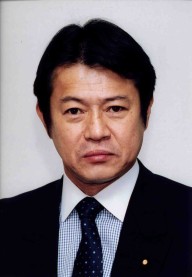Related Research Articles

Protectionism, sometimes referred to as trade protectionism, is the economic policy of restricting imports from other countries through methods such as tariffs on imported goods, import quotas, and a variety of other government regulations. Proponents argue that protectionist policies shield the producers, businesses, and workers of the import-competing sector in the country from foreign competitors and raise government revenue. Opponents argue that protectionist policies reduce trade, and adversely affect consumers in general as well as the producers and workers in export sectors, both in the country implementing protectionist policies and in the countries against which the protections are implemented.
In political science, statism or etatism is the doctrine that the political authority of the state is legitimate to some degree. This may include economic and social policy, especially in regard to taxation and the means of production.
The American School, also known as the National System, represents three different yet related constructs in politics, policy and philosophy. The policy existed from the 1790s to the 1970s, waxing and waning in actual degrees and details of implementation. Historian Michael Lind describes it as a coherent applied economic philosophy with logical and conceptual relationships with other economic ideas.

Shōichi Nakagawa was a Japanese conservative politician in the Liberal Democratic Party (LDP), who served as Minister of Finance from 24 September 2008 to 17 February 2009. He previously held the posts of Minister of Economy, Trade and Industry and Ministry of Agriculture, Forestry and Fisheries in the cabinet of Junichiro Koizumi. He was regarded as one of Japan's most attractive public figures. On 4 October 2009, he was found dead in his Tokyo apartment. The cause of his death is yet to be determined; although no suicide note was found, there was also no indication of foul play.

Japanese nationalism is a form of nationalism that asserts the belief that the Japanese are a monolithic nation with a single immutable culture, and promotes the cultural unity of the Japanese. Over the last two centuries, it has encompassed a broad range of ideas and sentiments which have been harbored by the Japanese people in relation to their native country, its cultural nature, its political system, and its historical destiny. It is useful to distinguish Japanese cultural nationalism from political or state nationalism, since many forms of cultural nationalism, such as those which are associated with folkloric studies, have been hostile to state-fostered nationalism.

The economy of Asia comprises about 4.7 billion people living in 50 different nations. Asia is the fastest growing economic region, as well as the largest continental economy by both GDP Nominal and PPP in the world. Moreover, Asia is the site of some of the world's longest modern economic booms.
Economic nationalism or nationalist economics is an ideology that prioritizes state intervention in the economy, including policies like domestic control and the use of tariffs and restrictions on labor, goods, and capital movement. The core belief of economic nationalism is that the economy should serve nationalist goals. As a prominent modern ideology, economic nationalism stands in contrast to economic liberalism and economic socialism.

The infant industry argument is an economic rationale for trade protectionism. The core of the argument is that nascent industries often do not have the economies of scale that their older competitors from other countries may have, and thus need to be protected until they can attain similar economies of scale. The logic underpinning the argument is that trade protectionism is costly in the short run but leads to long-term benefits.
Labour unions emerged in Japan in the second half of the Meiji period, after 1890, as the country underwent a period of rapid industrialization. Until 1945, however, the labour movement remained weak, impeded by a lack of legal rights, anti-union legislation, management-organized factory councils, and political divisions between “cooperative” and radical unionists.

The Japanese economic miracle refers to Japan's record period of economic growth between the post-World War II era and the beginning of the global Oil Crisis (1955-1973). During the economic boom, Japan rapidly became the world's third-largest economy. By the 1970s, Japan was no longer expanding as quickly as it had in the previous decades despite per-worker productivity remaining high.
Techno-nationalism is a way of understanding how technology affects the society and culture of a nation. One common example is the use of technology to advance nationalist agendas, with the goal of promoting connectedness and a stronger national identity. As noted by Alex Capri, the rise of techno-nationalist approaches has precipitated a US-China race to promote ideological values through the reshaping of institutions and standards. This idea establishes the belief that the success of a nation can be determined by how well that nation innovates and diffuses technology across its people. Technological nationalists believe that the presence of national R&D efforts, and the effectiveness of these efforts, are key drivers to the overall growth, sustainability, and prosperity of a nation. Techno-nationalism is an increasingly dominant approach in governance that links a nation’s technological capabilities and self-sufficiency to its state security, economic prosperity, and social stability. It is a response to a new era of global systemic competition between differing ideologies of economic development.
Vinod K. Aggarwal is an American professor and holds the Alann P. Bedford Endowed Chair of Asian Studies in the Travers Department of Political Science. He is an Affiliated Professor in the Haas School of Business, and directs the Berkeley APEC Study Center (BASC). He is a visiting professor at INSEAD's Asia campus, a blogger for the Harvard Business Review, and has contributed to the New York Times. He also serves as Editor-in-Chief of the journal Business and Politics. Aggarwal is a frequent commentator and author about issues related to international political economy. He has appeared on the Korean television show Great Minds in 2021 and in 2023-24. In addition, he appears regularly on American television.

Relations between the European Union (EU) and Japan date back to 1959. They have a strong trade relationship, particularly in investment flows.
The Lycée Seijo d'Alsace was a Japanese boarding high school in Kientzheim, Haut-Rhin, in the Alsace region of France, near Colmar. It was operated by Seijo Gakuen, an educational society affiliated with Seijo University, and therefore was an overseas branch of a Japanese private school, or a Shiritsu zaigai kyoiku shisetsu.

Rikkyo School in England is a Japanese boarding primary and secondary school in Rudgwick, Horsham District, West Sussex. The school uses the Japanese curriculum, and is one of several Japanese schools in the UK to do so. It is a Shiritsu zaigai kyōiku shisetsu or an overseas branch of a Japanese private school.

Waseda Shibuya Senior High School is a Japanese school in West Coast, Singapore. It is affiliated with Waseda University in Shinjuku, Tokyo, making it a regional branch of a Japanese private school, and is located on the city-state's western coast. The school is operated by Waseda Shibuya Senior High School Pte. Ltd.

Makuhari Junior and Senior High School is a Japanese private secondary school in the Makuhari area, in Mihama-ku, Chiba City, Chiba Prefecture. It is operated by the Shibuya Kyouiku Gakuen. In terms of the number of students accepted by top national universities, the school is now ranked among the top 5 high schools in Japan.

The Japan Economic Foundation is an organization which describes itself as promoting economic and technological exchanges between Japan and other countries. Its head office is on the 11th floor of the Jiji Press Building in Ginza, Chuo, Tokyo. Previously its head office was on the 11th floor in the Fukoku Seimei Building in Uchisaiwai-cho, Chiyoda, Tokyo.
Naohiro Amaya was a Japanese politician who served as the head of the Ministry of International Trade and Industry (MITI).

ZANUTI INC. is a mechanical watch manufacturer established in 1887 by Albert Favre Zanuti, currently headquartered in Switzerland and with regional offices in the United States and Japan.
References
- ↑ "Economy, Culture & History JAPAN SPOTLIGHT Bimonthly Advertising Rates Archived 2012-12-24 at the Wayback Machine ." (Archive) Japan Spotlight. Retrieved January 19, 2014.
- ↑ "JEF's Magazine Archived 2014-02-01 at the Wayback Machine " (Archive Archived 2014-02-01 at the Wayback Machine ) Japan Spotlight. Retrieved January 19, 2014.
- 1 2 3 Trevor, Malcolm. Japan - Restless Competitor: The Pursuit of Economic Nationalism. Routledge, December 16, 2013. ISBN 1134278349, 9781134278343. p. 63. "The Journal of Japanese Trade and Industry, for instance, claims to be independent and gives no outward sign of putting forward official views, while its publisher, the Japan Economic Foundation, sounds a foundation like any other: until one[...]"